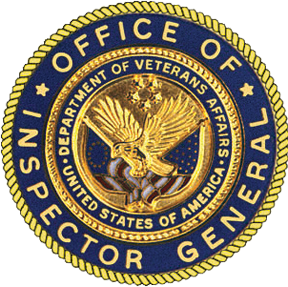Mismanaged Mental Health Care for a Patient Who Died by Suicide and Review of Administrative Actions at the VA Tuscaloosa Healthcare System in Alabama
Report Information
Summary
The OIG evaluated allegations related to the care of a patient who died by suicide six days after a mental health appointment at the VA Tuscaloosa Healthcare System (facility). Concerns regarding appointment scheduling, supervision of a posttraumatic stress disorder (PTSD) clinic social worker (social worker), and leaders’ administrative actions were reviewed.
The OIG substantiated that a mental health nurse practitioner failed to inform the patient of a mirtazapine-related suicide risk, complete required suicide screening, and closely monitor the patient after initiating mirtazapine. Administrative staff did not attempt to schedule the patient’s medication management follow-up appointment within two business days, as required.
The OIG substantiated that the social worker failed to sufficiently assess suicide risk, conduct lethal means safety counseling, and seek consultation. Facility staff did not arrange the patient’s PTSD treatment and the social worker received inadequate supervision.
The OIG substantiated that staff did not submit a consult for required traumatic brain injury evaluation.
Staff did not inform leaders about closing an incomplete root cause analysis action item. The peer review committee failed to address two identified system issues. Further, a suicide prevention coordinator failed to complete required Behavioral Health Autopsy Program (BHAP) documentation.
VHA leaders did not provide guidance to suicide prevention staff on when not to contact family to offer a BHAP interview, and facility leaders did not conduct an institutional disclosure due to an erroneous understanding of requirements.
The OIG made one recommendation to the Under Secretary for Health to consider establishing written guidance regarding the BHAP family interview process, and 13 recommendations to the Facility Director related to reviewing the patient’s care; boxed warning education; suicide risk screenings; appointment scheduling; lethal means safety counseling; PTSD clinic processes; traumatic brain injury evaluation; and root cause analysis, peer review, BHAP, and institutional disclosure processes.
The VA Tuscaloosa Healthcare System Director conducts a full review of care provided to the patient by clinical staff, consults with Human Resources and General Counsel Offices, and takes action as needed.
The VA Tuscaloosa Healthcare System Director strengthens processes to ensure that providers provide patient education about applicable boxed warnings when prescribing psychiatric medication, and monitors compliance.
The VA Tuscaloosa Healthcare System Director ensures mental health staff conduct suicide risk screenings and assessments as required by the Veterans Health Administration, and monitors compliance.
The VA Tuscaloosa Healthcare System Director evaluates outpatient mental health clinic scheduling procedures; identifies barriers to timely appointment scheduling, including staffing levels; and takes action as warranted.
The VA Tuscaloosa Healthcare System Director strengthens processes to ensure adequate lethal means assessment and lethal means safety counseling with patients.
The VA Tuscaloosa Healthcare System Director reviews posttraumatic stress disorder clinic processes to consult with a patient’s prescriber following worsening of a patient’s mental health symptoms.
The VA Tuscaloosa Healthcare System Director ensures posttraumatic stress disorder clinic consult and documentation procedures align with Veterans Health Administration requirements.
The VA Tuscaloosa Healthcare System Director conducts a review of the supervisory oversight of the social worker and other clinicians in the posttraumatic stress disorder clinic to ensure the identification and follow-up of clinical concerns for patients with complex mental health needs.
The VA Tuscaloosa Healthcare System Director strengthens processes to ensure adherence to Veterans Health Administration and facility traumatic brain injury screening and consult requirements, and monitors compliance.
The VA Tuscaloosa Healthcare System Director evaluates the root cause analysis processes regarding reporting of incomplete action items in accordance with Veterans Health Administration requirements, takes action as needed, and monitors compliance.
The VA Tuscaloosa Healthcare System Director evaluates the Peer Review Committee processes on addressing identified system issues in accordance with Veterans Health Administration requirements, takes action as needed, and monitors compliance.
The Under Secretary for Health considers establishing written guidance regarding the Behavioral Health Autopsy Program family interview process, including suicide prevention program staff’s consultation, to ensure that the decision to not outreach a family member is based on the best interest of the family.
The VA Tuscaloosa Healthcare System Director ensures compliance with the Behavioral Health Autopsy Program including completion of the Family Interview Tool-Contact Form.
The VA Tuscaloosa Healthcare System Director evaluates the care provided to the patient, determines if an institutional disclosure is warranted, and takes action as indicated.
